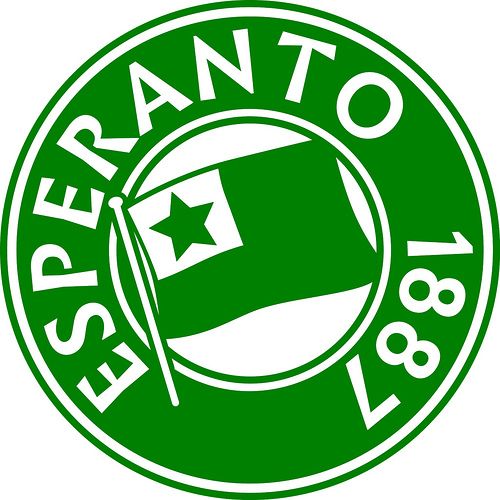Jes, it’s a western lingvo and that’s its biggest flaw
La artikolo montras Esperanton ne estas okcidento.
Those who criticize Esperanto for being too Western overlook two important aspects of the question. First, they neglect to proceed to a linguistic analysis of the language, which is the only way to discover how different it is, in depth, from what it seems to be at first sight: their judgment is purely superficial. Second, they ignore the fact that some language is necessary if people with different mother tongues have to communicate. In practice, on what language does one fall back when mutual comprehension is needed and Esperanto is not used? On English! Isn’t this one a Western language? As a matter of fact, it has many more Western features than Esperanto, and is much more difficult to learn and use for the large majority of the inhabitants of our planet. No language could put all peoples on an equal footing. But among all those that exist and are being used, Esperanto comes closest to that ideal. After 2000 hours of English (five hours a week for ten school years), the average Japanese and Chinese are incapable of using it in a really operational way. Their clumsiness, as well as their difficulty in producing the relevant sounds, tend to complicate communication or to make them ridiculous, a risk which is, unfairly, spared the native speaker of English, although he is the one who has made no effort towards mutual understanding. After 220 hours of Esperanto, as an average, Eastern Asians can really communicate in that language, a language which is a foreign language for everybody and in which the risk of sounding strange is thus equally distributed.
This article is stupid. Esperanto is zonal germanic+romance+slavic constructed language. Just because there are ~1% elements in the language that differ from western languages does not make it less western language. My native language is Turkic and Esperanto seems to me unattractive and foreign, the same way a language like Kotava would seem to westerners, for example.
This article is stupid.
Malĝentila.
Esperanto is zonal germanic+romance+slavic constructed language. Just because there are ~1% elements in the language that differ from western languages does not make it less western language
Ĝi certe malsamas sur kvanta skalo, ne certe sur kvalita skalo.
- Kial vi pensas slavikan lingvojn estas okcidentoj?
- Kial vi penas ke centre 1%-a elementoj malsame al okcidentan lingvojn.
- La fakto radika vortaj ŝanĝoj ne estas okcidentalingva aŭ angla trajto; ĉi tiu trajto trovita en Mandareno kaj Araba lingvo.
- Landaj nomoj estas referas denaska nomoj, ne orientalistaj nomoj:
- Kartvelo nomiĝas kartvel/ en Esperanto; okcidenta lingvoj nomi “Georgia” en Angla (Georgian), Nederlanda, Germana etc.
- Barato nomiĝita barat/ en Esperanto anstataŭ okcidenta landoj nomas baraton “Indi”: Angla (India), Nederlanda (Indi), Germana (Indi), Dana (Indi).
- Japano nune povas nomiĝas nipon/o.
- Ne perfekte malbonŝanĉe… (Japan/, Ĉin/, UGK!)
ne, popoleca esperanta vorto por “not”, formis el Rusan lingvon (не).My native language is Turkic and Esperanto seems to me unattractive and foreign,
Bono. Esperanto designis kreski interlingvan komunikadojn; ĝi devus ne sekvas unu lingva demografio.
I don’t want to argue with you, your arguments are absurd, and you make a lot of mistakes in Esperanto:
- “slavikan lingvojn” -> “slavikaj lingvoj”
- “radika vortaj” -> " radikaj vortaj"
- “estas referas denaska nomoj”?
- “okcidenta lingvoj” -> “okcidentaj lingvoj”
- “okcidenta landoj” -> “okcidentaj landoj”
- “povas nomiĝas”?
- “interlingvan komunikadojn” -> "interlingvajn komunikadojn
- “devus ne sekvas” -> “devus ne sekvi” (not sure about this)
- “lingva demografio” -> “lingvan demografion”
I don’t want to argue with you, your arguments are absurd,
Kiel? (Malakceptecan argumenton diris vi.)
and you make a lot of mistakes in Esperanto:
- “slavikan lingvojn” -> “slavikaj lingvoj”
- “radika vortaj” -> " radikaj vortaj"
- “okcidenta lingvoj” -> “okcidentaj lingvoj”
- “okcidenta landoj” -> “okcidentaj landoj”
- “interlingvan komunikadojn” -> "interlingvajn komunikadojn
- “devus ne sekvas” -> “devus ne sekvi” (not sure about this)
I didn’t see any document stating that subject-adjectival agreement was required.
“estas referas denaska nomoj”?
Mi ne vidis ĉin tiun.
“povas nomiĝas”?
That’s can (present) name (transitive, present).
“lingva demografio” -> “lingvan demografion”
Mi ne vidas ĉin tion. Mi ankoraŭ necesite pensu al uzi akuzativan afikson…#
About that adjective-subjective agreement thing, you were right, that is indeed in the fundamento de esperanto. So, yeah it was incorrect to speak like that.
(I’m unable to edit that post sadly…)
I mean, terms like “eastern” and “western” are not totally accurate, but in general yes Esperanto is a western language, and I can confirm. Essentially it takes after both western and eastern European languages to the maximum degree, and the fact that it became hyper-agglutinating and analytic (I hope that’s the right term) is not necessarily an “eastern” trait. Finno-Ugric languages are not “non-western”, are they?



